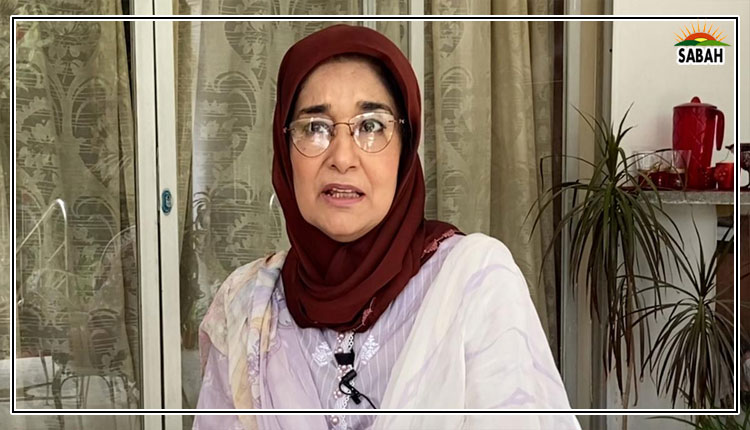Dr. Fowzia Siddiqui urges taking proactive steps towards prevention & management of diabetes
KARACHI, Oct 20 (SABAH): Noted neurophysician of the country Dr. Fowzia Siddiqui has stressed the need for proactive steps towards prevention and management of diabetes.
Addressing at the Euro Endocrine Conference in Istanbul where Dr. Fowzia Siddiqui represented Pakistan on prevalence of neurological issues in diabetes in Pakistan and its complex effects on the body, she expressed concern over alarming rise in cases of diabetes in Pakistan.
In her key note presentation on “Diabetes: the neuro-endocrine overlap”, she said that Pakistan has become the world’s number one in diabetes prevalence, which is a worrisome trend.
She said that diabetes is no longer considered just an endocrine disorder, but its effects are far more complex, involving the brain and other systems.
Dr. Fowzia said the center for blood sugar control lies in the brain, and any disruption in the pathway can cause diabetes, including stress, depression, and anxiety.
She said high blood sugar levels can cause micro vascular changes in the brain, leading to debilitating strokes and dementia. There is also a strong link between Alzheimer’s disease and diabetes, with poor blood sugar control leading to worse outcomes.
Dr. Siddiqui said that peripheral neuropathy is a neurological complication of diabetes, causing burning, stabbing pain, numbness, and tingling sensations in arms and legs.
Stress reduction and management are crucial in addition to diet and exercise for effective diabetes management, suggested Dr. Fowzia Siddiqui, who is also President of Pakistan Epilepsy Foundation.
However, Dr. Siddiqui told the moot that new medications and appropriate usage of available medicines are important for managing diabetes.
It’s essential to raise awareness about diabetes and its complexities to encourage people to take proactive steps towards prevention and management. By highlighting the importance of stress reduction, diet, exercise, and proper medication usage, we can work towards mitigating the effects of diabetes and improving overall health outcomes, she concluded.












